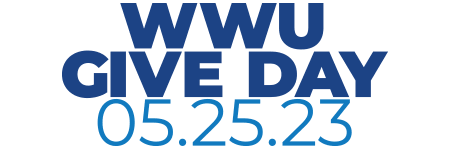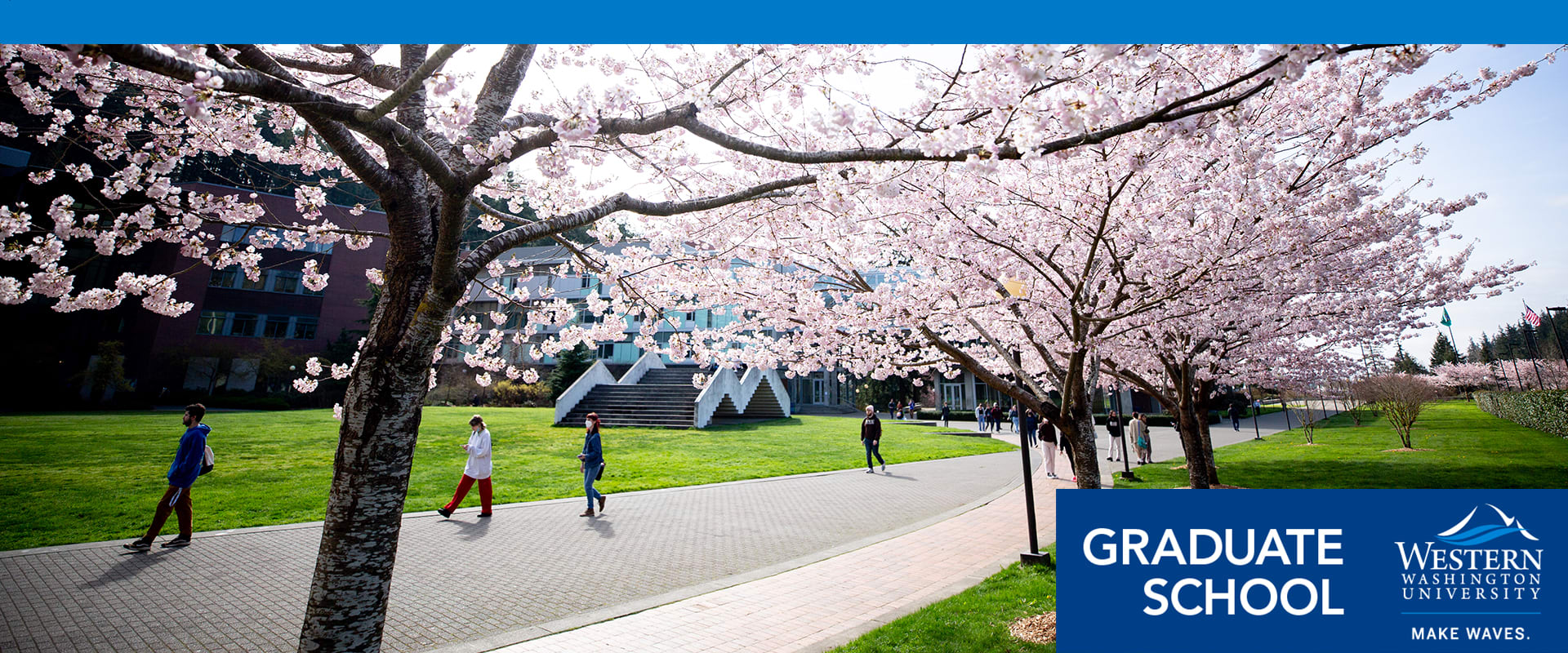
Support Graduate Research and Conference Travel on Give Day
Last year, we were able to fund research and conference travel for 29 graduate students. This year, we want to expand travel and conference opportunities by 30% so we can fund 9 more graduate students.
To reach our goal, we need to raise $3,150 on May 25th!
Gifts supporting graduate research and conference travel expand educational and professional opportunities for students in all disciplines and are critical for our future. Graduate students drive original research and discovery, deepen our understanding, and inspire, teach, and mentor our undergraduates.
The Graduate School needs your help to ensure these bright scholars have the funding they need to thrive and grow as scholars.
Meet the Graduate Students Who Benefit from Your Generosity
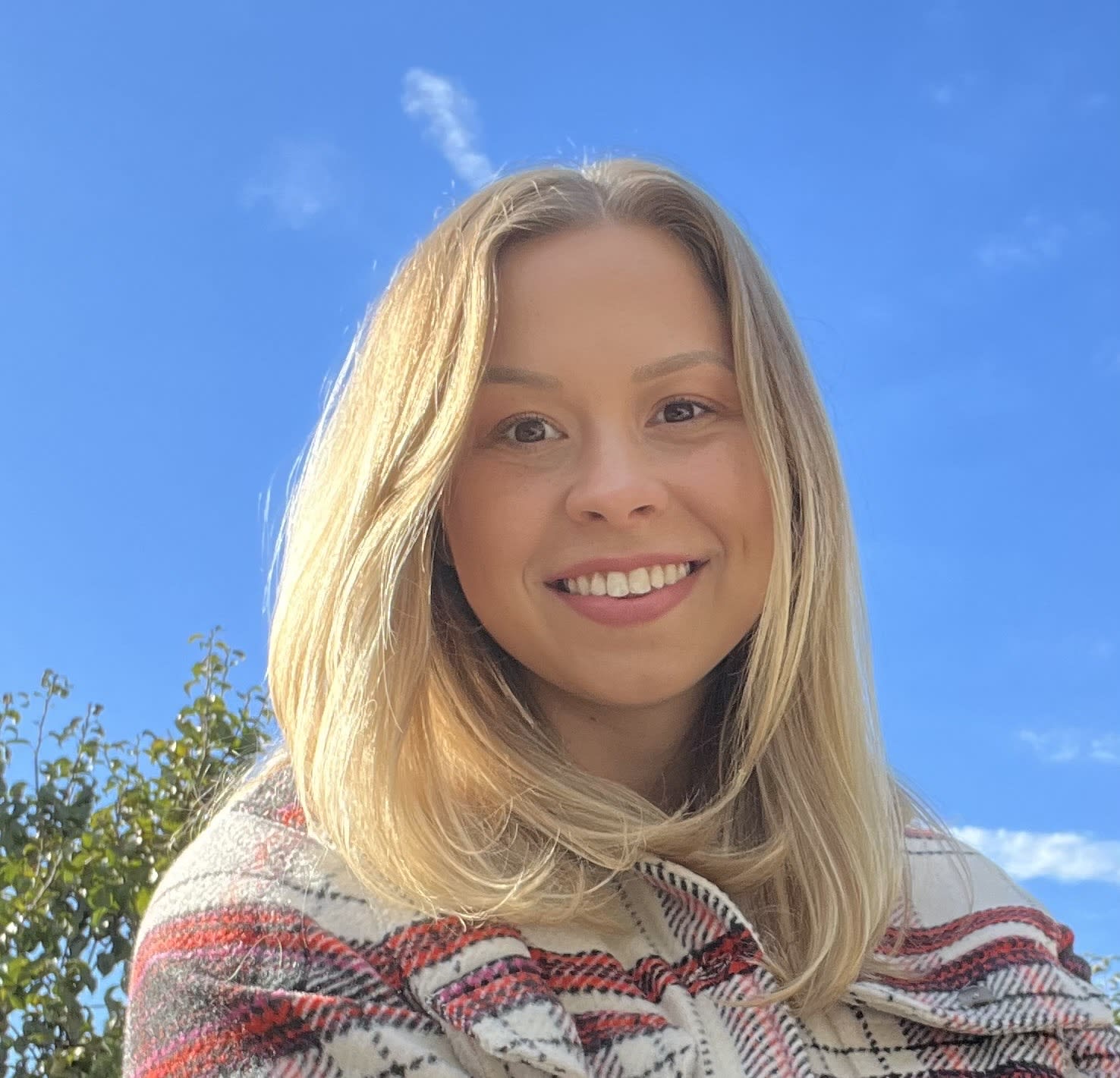 Jessica Mendiola, Doctoral Candidate in Audiology
Jessica Mendiola, Doctoral Candidate in AudiologyJessica Mendiola (she/her), a third-year doctoral candidate in audiology, studies how gamified auditory training may help veterans who suffer from various hearing complaints.
The veterans in Mendiola’s study play an app-based game in which they move through an obstacle-filled world—all by responding to sound cues tailored to their individual hearing performance. The game, developed by UC Riverside, is aimed at improving cognitive abilities via perceptual learning.
“It’s supposed to target and train auditory skills related to sound discrimination, localization, and memory,” Mendiola says. By comparing participants’ baseline hearing to their hearing after several gaming sessions, she can determine the game’s effectiveness in helping veterans with a range of hearing complaints.
Mendiola settled in Washington after several years serving in the military. As an undergraduate at WWU, she uncovered a passion for the anatomy and physiology of hearing, which soon led her to Western’s AuD program.
Mendiola works closely with her advisor, Dr. Anna Diedesch. In the lab, they build research protocols, collect pilot data, and make sure everything stays on track. She received a travel grant from the Graduate School and plans to publish and present her research at audiology training conferences.
When Mendiola isn’t working on her research, seeing patients, or contributing to the Student Academy of Audiology (she was the vice president of Western’s chapter of the national organization), it’s game-on at home with her kids and husband—whether that means arts and crafts, DIY projects, or getting outside for a hike.
Mendiola says that working with patients has been the most rewarding part of her graduate experience. This quarter, she’s been working at the VA, where fitting patients with amplification can be truly life changing. “What really drives me is bettering the quality of life of the patients I serve,” she said.
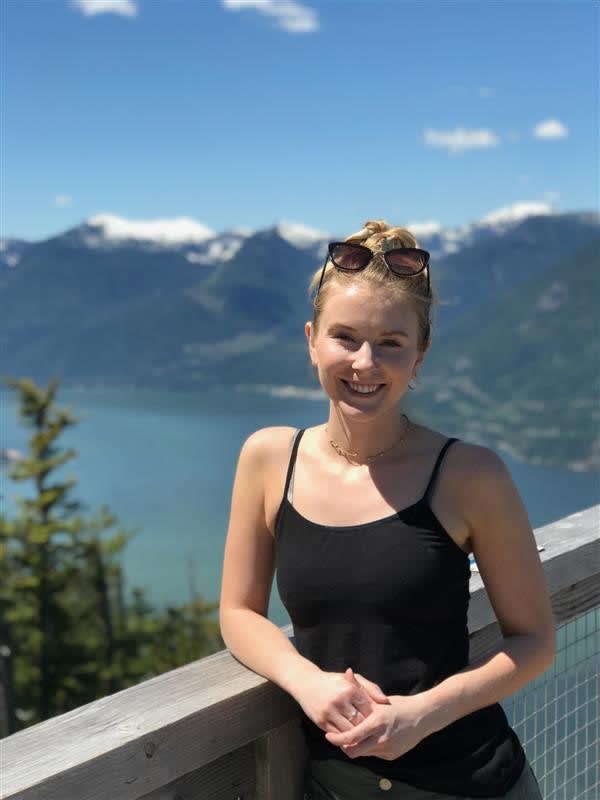 Hannah Hennig, MS Candidate in Chemistry
Hannah Hennig, MS Candidate in Chemistryis a graduate student of chemistry who focuses on the development and characterization of photothermal catalysts. Specifically, Hennig’s research is centered around a reaction that satisfies a critical step in the production of solar fuels: optimizing the light-to-chemical energy efficiency of catalytic systems used in the hydrogenation of carbon dioxide (CO2).
Hennig is a recipient of both the WWU Graduate Research Award and the WWU Washington Space Grant Consortium Summer Research Award in 2021—a 10-week summer fellowship funded by NASA—for her thesis project, “Nickel Phosphide Photocatalyst Development for CO2-Derived Solar Fuels.”
During her fellowship last summer, Hennig’s research was focused on studying different combinations of catalyst and support materials to gain insight on their respective roles in determining photothermal catalytic properties. She will present her findings this spring at the American Chemical Society (ACS) Conference and WWU’s Scholar’s week.
Hennig is a member of the Bussell Group, a surface and materials chemistry-focused research group supervised by WWU Professor of Chemistry, Dr. Mark Bussell. Hennig says that Dr. Bussell fosters a collaborative work environment rooted in real-world applications and has been an excellent mentor in both research and writing. Hennig also recently received the WWU Ross Travel Grant, which supports graduate student travel for professional opportunities. Hennig says, “It’s an awesome program that will cover the cost of airfare to the ACS conference in San Diego!”
Between her undergraduate and graduate studies, Hennig worked in environmental analytical laboratories and developed a love for instrumentation and a deep appreciation for what she calls “the nitty-gritty parts of analytical work.” After graduating, she plans to return to industry with a focus on characterization and instrumental analysis.
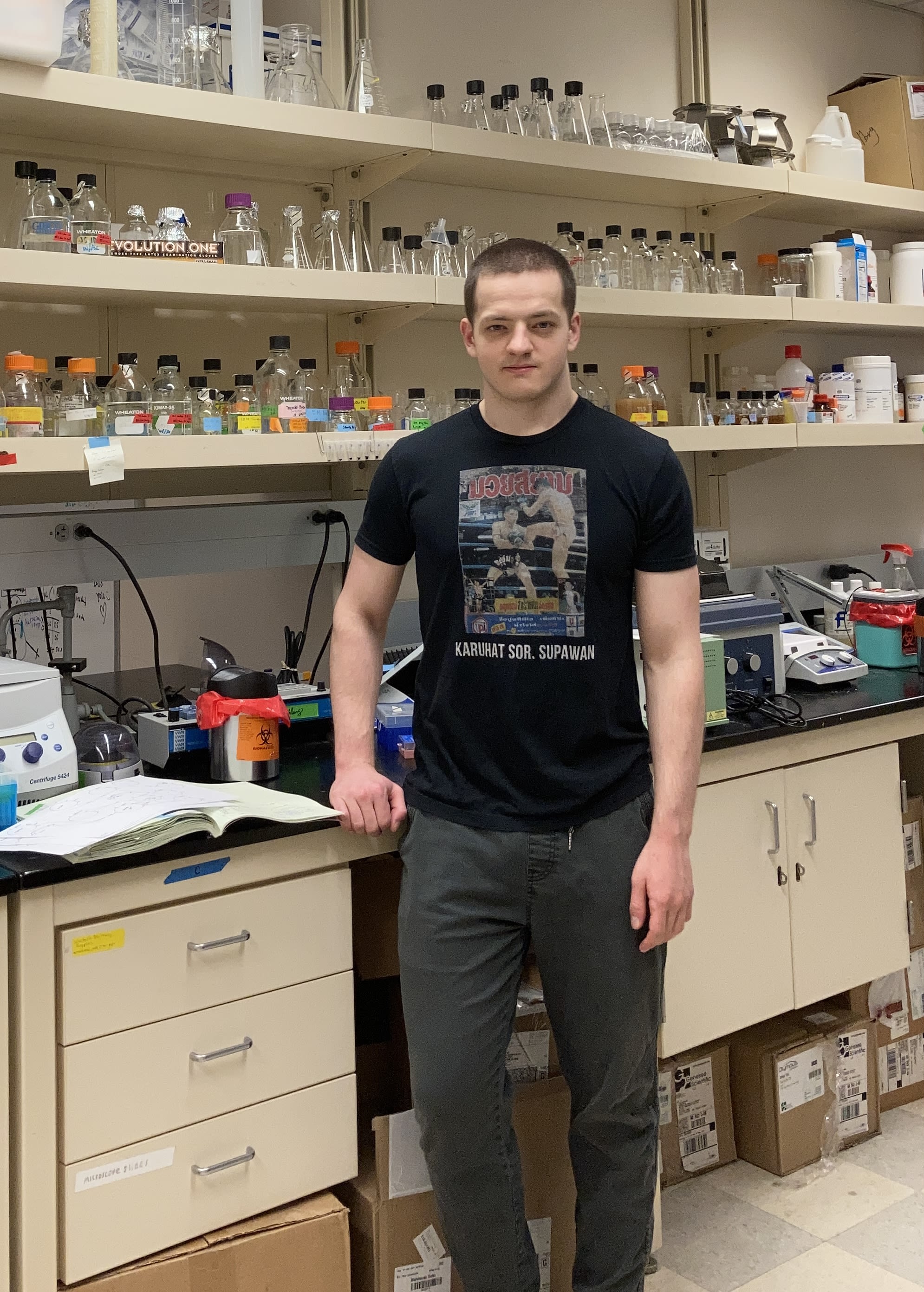 Heino Hulsey-Vincent, MS Candidate in Biology
Heino Hulsey-Vincent, MS Candidate in BiologyHeino Husley-Vincent (he/him) is a second-year grad student of biology and recipient of a travel grant from the Graduate School and the WWU Grad Research Award for his thesis, “Cell Specific ERAD Rescue in Caenorhabditis Elegans.” Under his graduate research advisor Dr. Lina Dahlberg, Heino studies protein quality control in neurons. More specifically, he focuses on proteins that are responsible for marking misshapen proteins to be destroyed.
Proteins misfold all the time. But misshapen proteins, if not corrected, must be destroyed. If the degradation process suffers, protein build-up can lead to diseases like cystic fibrosis, ALS, Parkinson’s disease, and Alzheimer’s disease. Mammalian nervous systems are difficult to work with, so Heino uses roundworms as a model organism for his research.
Heino started at WWU as an undergrad and continued on to Western’s MS program in biology. He says if there’s one thing he’d pass on to other students, “I’d encourage undergrads to join a lab immediately if you have any interest in research!” Heino has presented his now published research at a number of conferences like the Seattle Cell Science Symposium and the American Society for Cell Biology in Washington D.C. and notes that most people in his group got their travel to D.C. and registration fees paid for by WWU. Heino adds, “Travel and conference funding is a great example of what doors open when you join a lab! Our research mentors are very supportive, and in the lab, there’s no competitiveness. It’s collaborative—we all help each other out.”
After graduation, Heino plans to join a lab where he can model disease or explore neurons more. He's super interested in understanding more about learning/memory on a cellular level. He recently joined Giving What We Can, an effective altruism organization, and pledged 10% of his pre-tax income to charity from now until his retirement so that wherever his lab research takes him, he’ll still have firm footing in reducing climate change and improving human well-being.
When you support graduate research and travel, your gift matters now and continues to give for generations to come.
